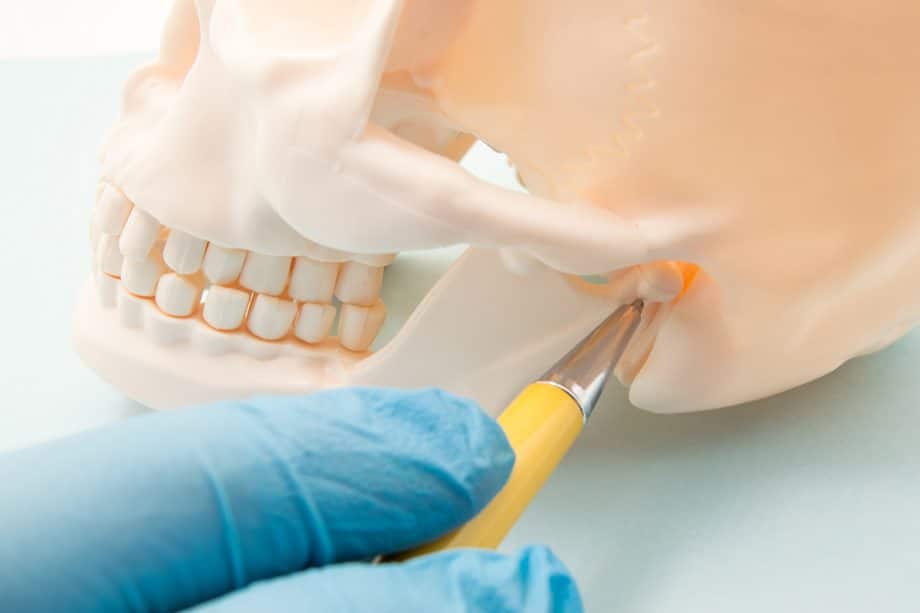TMJ disorder is a condition affecting the temporomandibular joint (TMJ), the place where your lower jaw connects to your skull. It is characterized by pain and limited movement in the jaw. TMJ disorder can sometimes come and go. Flare ups may occur periodically, resulting in recurring symptoms.
How long do TMJ flare ups typically last? What can I do to get relief during a flare up? Learn what to do in case of a TMJ flare up and how to get lasting relief.
What is TMJ Disorder?
TMJ disorder occurs when the temporomandibular joint becomes inflamed. This can occur due to an injury or excessive strain on the joint. Inflammation leads to swelling and pain, which can also make it difficult to open and close your mouth. The joint may be dislocated or the disk that cushions the joint may slip out of place.
What Are the Symptoms of TMJ Disorder?
TMJ disorder can result in a wide variety of symptom, including:
- Pain in the jaw, face, temple, or ear.
- Limited movement in the jaw.
- Difficulty chewing.
- Headaches, especially in the temple region.
- Muscle stiffness in the jaw and face.
- Popping or clicking sound when opening and closing the mouth.
What Causes TMJ Flare Ups?
You may experience symptoms of TMJ disorder that come and go. When your symptoms return after a period of time without symptoms, it is called a flare up. A flare up may be caused by:
- Stress. Many people hold tension in their jaw when they feel stressed. If you are experiencing an abnormal level of stress, you may find yourself with a TMJ flare up.
- Teeth grinding. If you grind your teeth it can lead to a TMJ flare up. The excess strain that teeth grinding puts on your jaw can cause inflammation in the joint.
- Excessive chewing. Chewing gum for a long period of time or particularly hard or chewy food can cause a TMJ flare up.
- Yawning. Just yawning can cause a TMJ flare up if it causes you to open your mouth wider than you’re used to. If you’re tired enough to yawn, you may need some sleep to avoid a flare up.
How Long WIll a TMJ Flare Up Last?
It’s difficult to say how long a TMJ flare up will last. It varies from one person to another and also depends on the severity of the inflammation. In some cases your pain may go away in just a few days, and in other cases it could last for a week or more.
What Should You Do to Treat a Flare Up?
Start with some home remedies to help manage your symptoms, such as:
- Apply ice. Ice can reduce swelling and inflammation. Apply ice for 15-20 minutes at a time a few times a day until your symptoms subside.
- Rest your jaw. Try to avoid talking, yawning, singing, or anything that causes you to open and close your mouth frequently to give your TMJ a rest.
- Eat soft foods. Stick to soft foods and avoid anything chewy or hard for a few days to prevent strain on your jaw.
- Take anti-inflammatory pain medication. Pain relievers like ibuprofen are known to have anti-inflammatory benefits, making it more effective than acetaminophen.
When Should You Seek Professional Treatment?
If your symptoms persist for more than a week after trying home remedies, it may be time to contact your dentist. There are additional treatment options your dentist can offer to provide relief of your TMJ symptoms.
Laurie A. Rosato, DMD Provides TMJ Treatment
Our practice believes in getting to the source of the problem to provide therapy and relief of your discomfort. We provide treatment options that alleviate the tension and strain on your temporomandibular joint to relieve inflammation and pain.
Call 603-228-9276 or contact us today to learn more and schedule an appointment.

